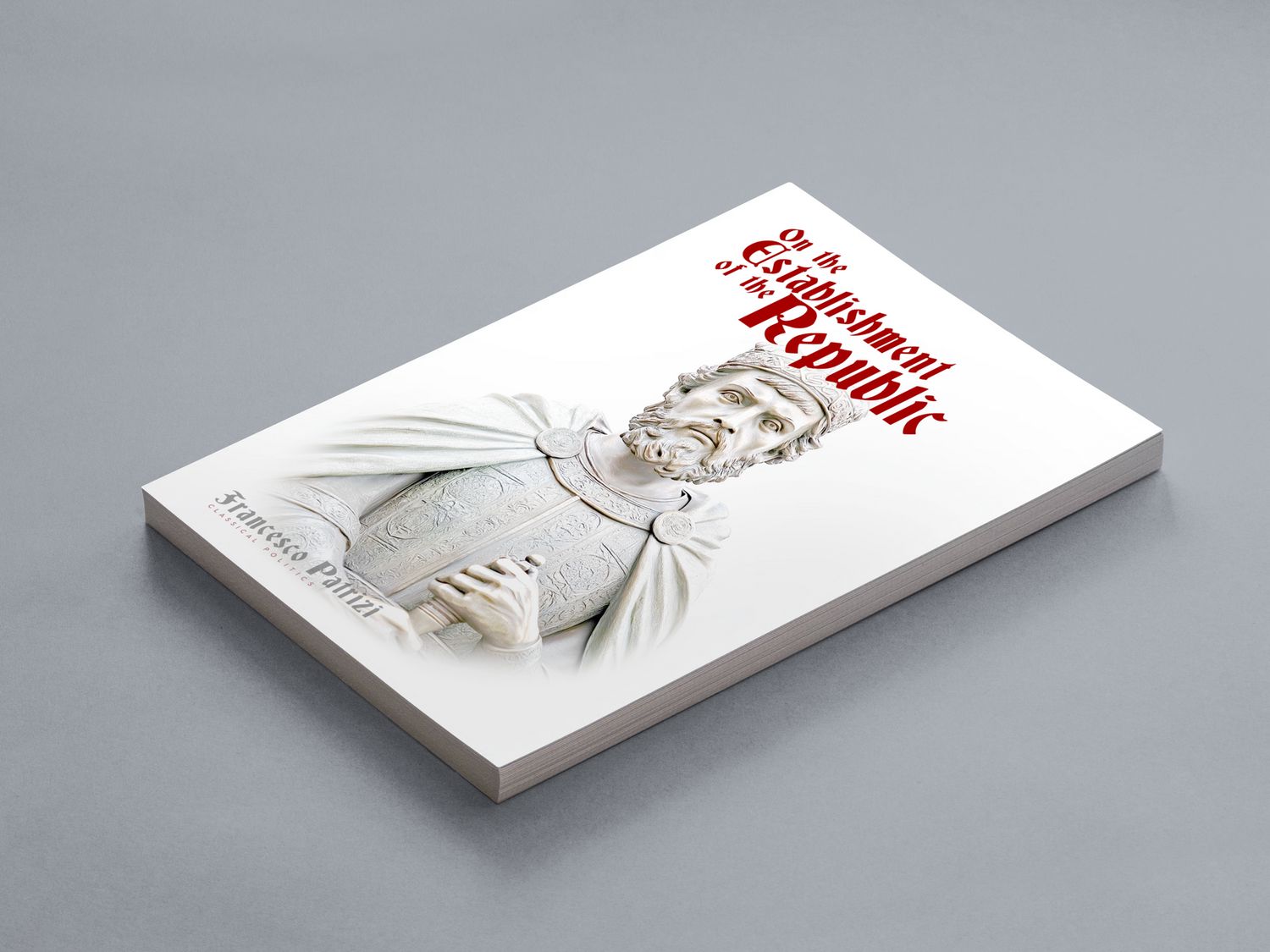On the Establishment of the Republic by Francesco Patrizi
Paperback — 176 pages
In establishing and ordering the common weale, much care and diligence must be undertaken. Without learning and virtue, wholesome rule is impossible. Such things are precisely what Francesco Patrizi endeavors to detail in this comprehensive work of political philosophy, marshaling myriad lessons from classical history as keystones in his theory of virtue politics.
He touches upon:
- republic vs. monarchy; politics laws & ordinances; support for learning
- marriage & housekeeping; household order
- duties & offices; civil citizens and countrymen
- the land's impact on man; buildings, walls, & gates; garrisons & libraries
- peace & war; liberal arts & sciences; election of magistrates
- vice & virtue; safeguarding the city; trades & vocations
- entreating the nobility; waterworks & waterways; castles & fortresses
- churches & monuments; martial discipline; & much more
Francesco de Giovanni Patrizi (1413 - 1494) was an Italian Roman Catholic Bishop and notable Renaissance philosopher. He studied Latin and Greek, served as professor of rhetoric at the University of Siena, undertook various ambassador missions, was elected bishop of Gaeta, and wrote a number of works. Some regard him as the "greatest political philosopher of the Renaissance period" and "the principal exponent of virtue politics."
This work is useful for teachers, students, and anyone interested in Western history and political theory.

